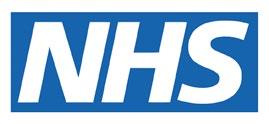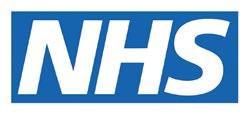Food and drink
People who are approaching the end of their life are encouraged to eat and drink whatever and whenever they like, as long as it’s safe to do so. During the last days or hours of life, it’s normal for people to eat and drink less than usual or not at all. The person’s body is slowing down and needs less energy.
You may find this difficult but it is perfectly normal and struggling to get someone to eat and drink can be more distressing.
Tastes may change, so that food they once liked may now be unpalatable. They may ask for breakfast at teatime. It doesn’t matter what is eaten, whatever is fancied is fine. Eating small snacks during the day may be easier than attempting normal meals. Sometimes people can manage softer foods more easily, such as smooth textured puddings, like mousse or yoghurt.
Continue to offer regular drinks throughout the day as this can help with dry mouth and keeping someone comfortable. However, as someone approaches the end of their life, they will likely stop drinking altogether. Whilst it is still possible, small sips of fluid can be encouraged, but this should not be forced. This is a natural course of events when someone is becoming more poorly. Please give drinks when the person is fully alert and ideally sat upright, or as upright as they can tolerate. If they start to cough when drinking, or are holding food in their mouth, please stop offering food and drink and seek advice from your nursing team.
Mouth care
If you feel able, we encourage you to become involved in your loved one’s care. One way of making them more comfortable is to carry out mouth care.
If you notice they have dry lips, you can apply Vaseline or lip balm to their lips. If your loved one is on oxygen apply a water-soluble lubricant such as K-Y Jelly.
A dry mouth can be helped by having cold drinks, or frozen fruit juices. Fizzy drinks are often appreciated as are any other tipple or beverage that is requested as this can be pleasurable . Frequent sips of fluid should be provided if tolerated or they may be able to suck on crushed ice or ice lollies.
If your loved one is unable to swallow, you can freshen up their mouth with a soft toothbrush or mouth swab dipped in any of the above. You can also use a small amount of artificial saliva gel, such as Oralieve Moisturising Mouth Gel rubbed into their gums or tongue.
Their tongue may appear coated, and this can be cleaned using a soft toothbrush or swab with a small amount of low foaming toothpaste, such as Sensodyne Pronamelor mouthwash. If this is painful, you can just use tap water. If possible, do this after meals. Your nurse will explain and demonstrate how to do this.
A coated tongue may also be a sign of oral thrush and your nurse will check regularly for this and will treat as necessary. This unfortunately can be very common.
Maximising comfort
Whilst able to do so, most people prefer to be up and about. Gradually, they will be able to do less, perhaps walking for only short periods or maybe only sitting in a chair.
Whilst they are still able, it is usually good to encourage them to get dressed and tend to their own personal needs as able. As the person becomes weaker and less mobile, they often spend more time in bed and it will become necessary to offer help with washing, bathing and cleaning teeth. If this is the case, please speak to your nurses who can discuss equipment and services available to help with this.
Resting and sleeping
Becoming sleepier is usually a sign that the person is becoming more poorly. People get tired very easily so short visits and conversations are better. They may begin to fall asleep during a conversation. Just sitting with them and not talking at all may be more relaxing. Holding hands or resting your hand on them can be comforting to you both.
Gradually, sleep will occur for longer and longer periods and the person may become unconscious. It is known that even when unconscious, people may be aware of those around them, so if you feel able and comfortable doing so, we would encourage you to talk to them as normal. Don’t say things which you would not want them to hear. Physical contact is important, touch in general is a way of letting your friend or relative know you are there.
When death is imminent
You may notice that their breathing pattern has changed – it may become more laboured or shallow, with longer pauses between each breath. Often the person may feel cool to touch and their skin colour may become very pale or slightly blue. Sometimes it may sound as if they need to clear their throat and while this may sound distressing to you, it is not usually distressing for them. Sometimes a medicine can help dry up the secretions causing the rattling or bubbly noise which can be administered by a nurse. A change of position may also help.
It is impossible to say exactly when someone will die, as the signs described above are only an indication that someone’s life is drawing to a close and this happens more quickly with some people than others. As the person nears the end of their life you may wish to be present, but if you do not, that is fine. You will feel a mixture of emotions and although you may have felt prepared for your loved one’s death, you may experience a lot of unexpected feelings.
Feelings and emotions
It may be hard for you to come to terms with all the changes happening. There may be a mix of emotions which are hard to cope with and understand. It may help to talk, share your feelings or to cry. You may prefer to find someone else to talk to, don’t hesitate to seek them out or to ask someone. You may want others around you, or you may find you prefer some privacy. There are contact details at the end of this booklet with service providers who can also offer you support if this is something you may find helpful.
What happens when my relative or friend has died?
You may be with them when they die. Stay with them a while if you would like to, either on your own or with someone else. If you have never seen someone after death, you may wonder what to expect. They will look very pale, and their skin will gradually feel colder.
Who should I contact when my relative or friend has died?
When someone has died at home, you will need to contact the GP or your community nursing team who may then visit and verify the death. If you have been supported by the community nursing team and/or a care agency, you may wish to call on them so they can offer you some support at this time.
The nurses will be able to offer you a booklet which has been produced to provide you with all the information and contact details that you will need.
When you are ready, you may want to contact your chosen funeral director, who will arrange to collect your relative or friend from home. If you want to arrange the funeral without the support of a funeral director, you can contact your local authority for guidance.
Useful contact numbers and websites
Brigitte Trust: Supporting people facing life-threatening illness and their families with emotional and practical help.
www.brigittetrust.org 01306 881816
Crossroads Care Surrey: Providing support and respite for unpaid carers and end of life services.
www.crossroadscaresurrey.org.uk 01372 869970
East Surrey Macmillan Cancer Support Centre: Located at East Surrey Hospital offering support and advice for people with cancer and their families and friends.
www.macmillan.org.uk 0808 808 00 00
Jigsaw South East: Supporting children, young people and their families facing the death of a family member. www.jigsawsoutheast.org.uk 01342 313895
Marie Curie: Providing care and support to people with any terminal illness and their families.
www.mariecurie.org.uk 0800 090 2309
St Catherine’s Hospice: Hospice care in West Sussex and East Surrey on wards or in your own home. www.stch.org.uk 01293 447333
First Community provides front-line NHS community healthcare services in East Surrey and parts of West Sussex.
We provide first-rate care, through our first-rate people, offering firstrate value. For more information visit:
www.firstcommunityhealthcare.co.uk
If you would like this information in another format, for example large print or easy read, or if you need help communicating with us:
First Community (Head Office)
Call: 01737 775450 Email: fchc.enquiries@nhs.net
Text: 07814 639034
Address: First Community Health and Care, Caterham Dene Hospital, Church Road, Caterham, Surrey CR3 5RH
• Twitter: @1stchatter
• Facebook: @firstcommunityhcNHS
• Instagram: firstcommunityhealthandcare
• LinkedIn: www.linkedin.com/company/first-community -health-&-care-c-i-c-
• TikTok: www.tiktok.com/discover/first-community-healthandcare
Reference: First Community Health and Care End of Life Symptoms Book
Publication date: May 2025
Review date: May 2027





